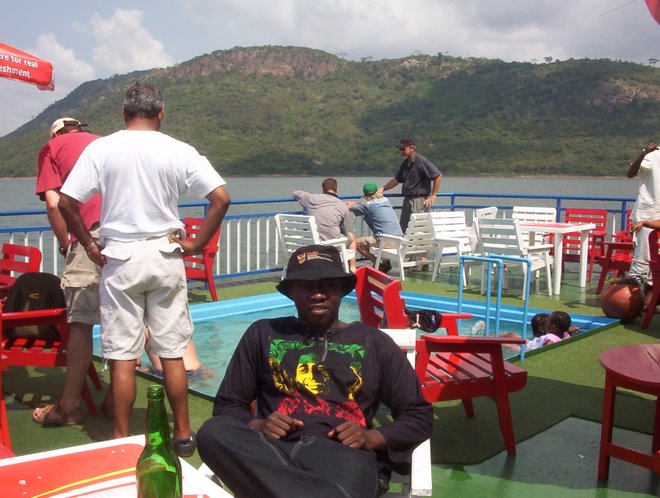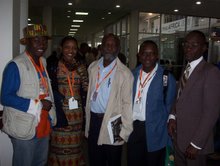CONTINUED sand winning and farming activties in the catchments of the Owabi Dam, which provides portable water to residents of Kumasi, are posing a serious threat to the lifespan of the dam.
Officials feared unless action was taken to stop the development, Kumasi and its residents would face severe water shortage in the near future since the volume of water could reduce heavily.
The sand winners have completely cleared parts of the forest reserve, which protects the Owabi River, which empties into the dam.
The forest prevents siltation as well as rapid evaporation of the water in the dam from the intense sun.
On an inspection tour it was detected that there was serious logging and clearing of the bushes in the catchments to the extent that many big trees have all been cut to pave way for sand winning.
It was also detected that parts of the forest had been cleared and pillars had been erected giving an indication that someone was allocating the plots to prospective developers.
The trend of encroachment if not checked could put the dam in danger in the near future, pre-empting a looming water crisis in Kumasi in the coming years.
The Owabi Dam was built to produce a total of 12million gallons of water a day but it currently produces only about three million gallons a day to supplement that of the Barekese Dam in the provision of pipe borne water for residents of Kumasi and its surrounding areas.
There were 10 tipper trucks in the catchments being filled with sand to be hauled away at the time of the visit.
It was, however, gathered that an average of 15 tipper trucks were available daily in the catchments to haul sand.
Four different access roads to the catchments had been created by the sand winners and many men were on site at vantage points busily digging for sand at the time of the visit.
A source said the sand winners were mainly from Bokankye, Nyankyereniase and Apatrapa and that the sand winning started about three years ago.
Although the Ghana Water Company Limited (GWCL) had on numerous occasions appealed to neighbouring villages to desist from clearing the forest cover and to discontinue with the sand winning that seems to be falling on deaf ears.
Information gathered indicated that security personnel of the GWCL have on numerous occasions sacked the sand winners from the catchments and seized their equipment yet the practice is unrelenting. The practice is said to have started on a gradual note and was now very vibrant.
For instance a number of houses totalling about 400 are known to have been illegally constructed in the Owabi catchment area and out of this 140 of them were demolished in 1998.
Just before the rest could be razed to the ground, the encroachers obtained a court injunction from a Kumasi High Court to restrain the GWCL and the case had since been pending.
The company subsequently refused to accept any negotiated settlement to the encroachment on the Owabi Dam catchment area to allow the illegal structures built there to remain.
It was gathered that as a result of the activities of the sand winners, any time it rained, polythene materials and sand washed into the dam, polluting it and reducing the depth of the water gradually.
The natives are said to have vowed to continue clearing the forest for farming purposes and sand winning as a means of livelihood unless compensation were paid to them.
They claim compensation for the land has not been paid to them since the construction of the dam and as a result their only source of livelihood depended on the land.












































